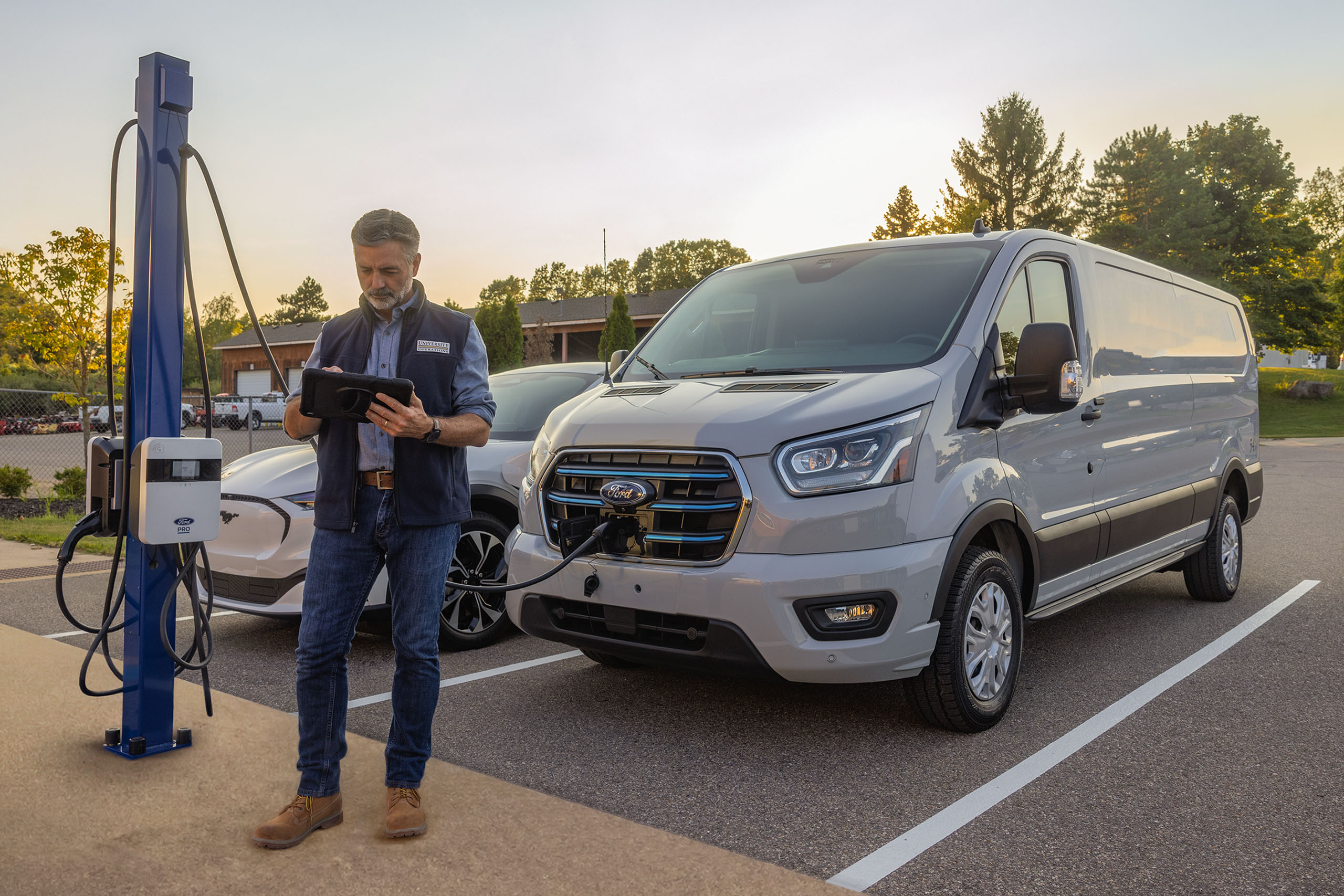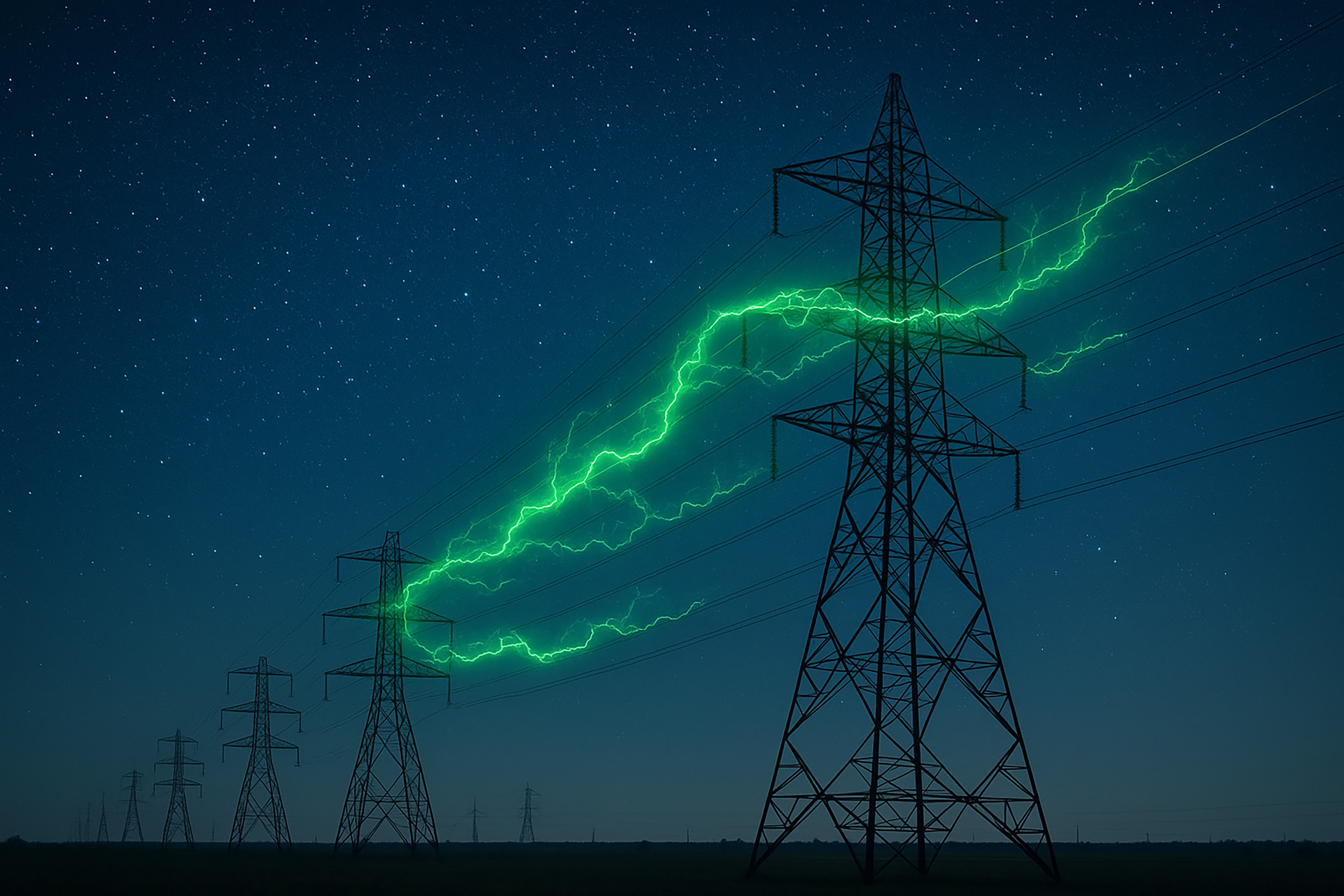
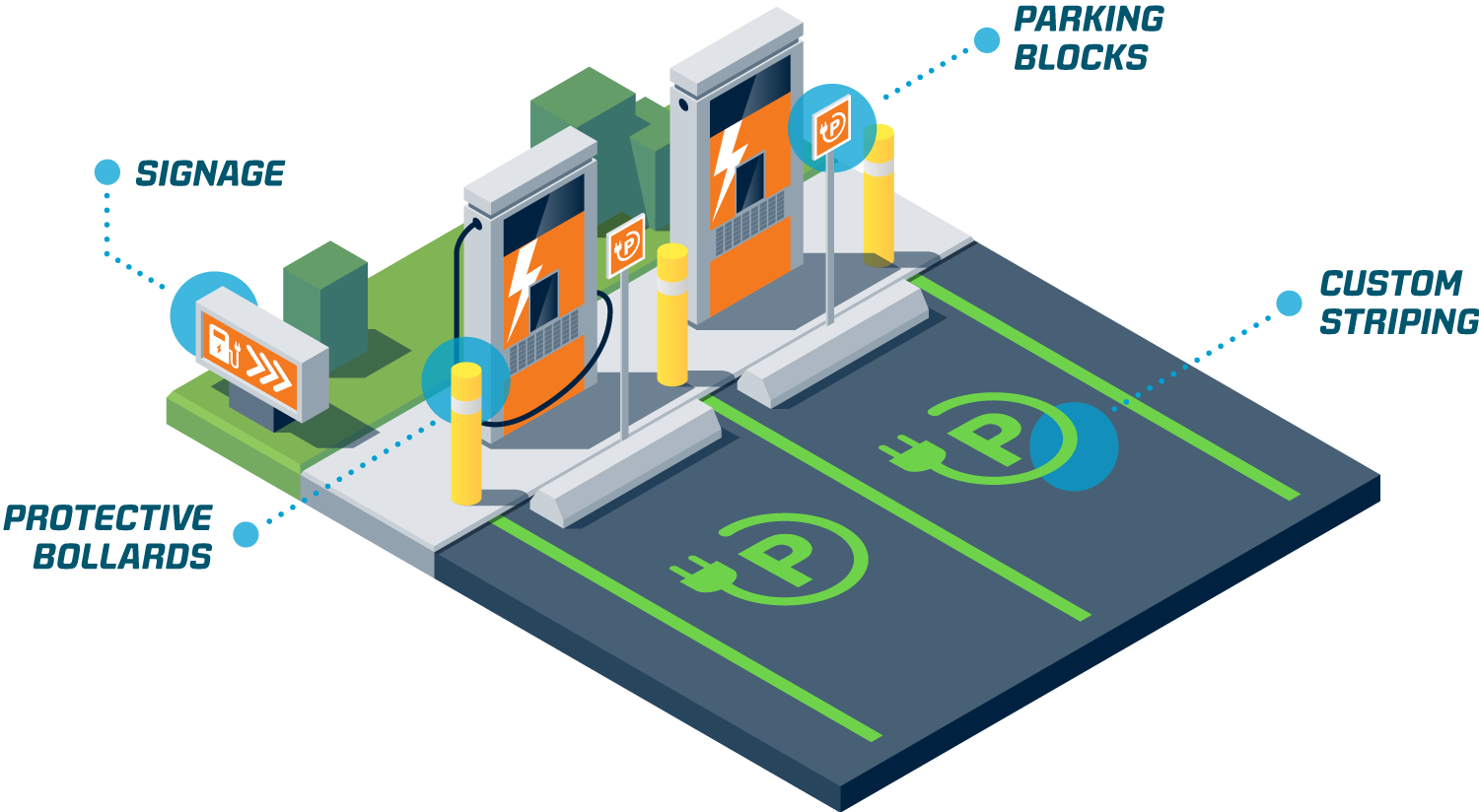
The market for electric vehicles (EVs) is growing exponentially, creating opportunities for businesses. As you incorporate EV charging into your plan, you are likely wondering how much EV charging stations cost in 2024.
The Bipartisan Infrastructure Law sets aside $5 billion in funding to help states install EV chargers along interstate highways. In September 2023, applications opened for a federal program that provides an additional $100 million to repair and replace existing EV infrastructure.
Your EV charging strategy can capitalize on these available funds to help offset the cost of EV charging stations in 2024.
The cost of an EV charging station involves much more than the installation of a piece of hardware. The total cost of providing EV charging depends on a number of factors.
These factors include:
- EV charging hardware and associated costs, including infrastructure
- Additional features
- Available incentives to significantly offset costs
Contact Future Energy today for help in determining the cost of EV charging stations in 2024.
Cost of Commercial EV Charging Station Equipment
In order to qualify for government incentives and to manage power use effectively, your EV chargers must be able to connect to the internet. Chargers with this capability are known as networked chargers.
Levels of Networking
The type of connectivity affects the base cost of the EV charger. Lower-priced EV chargers might not have the networking capabilities required for proper energy management and other data use. Future Energy helps our clients maximize the value of their investment by carefully evaluating the type of network connectivity that best fits their use cases:
- Dedicated network: EV chargers that connect to the manufacturer’s proprietary network upon purchase.
- Networked: Network-capable chargers that are hooked into a network, such as Future Energy’s Interface, a cloud software platform to measure and manage smart systems.
- Network capable: EV chargers that contain the appropriate technology but need to manually connect to point-of-sale and location-finding networks.
- Standalone or non-networked: EV chargers that are not capable of integrating into a network. These chargers are not appropriate for commercial use.
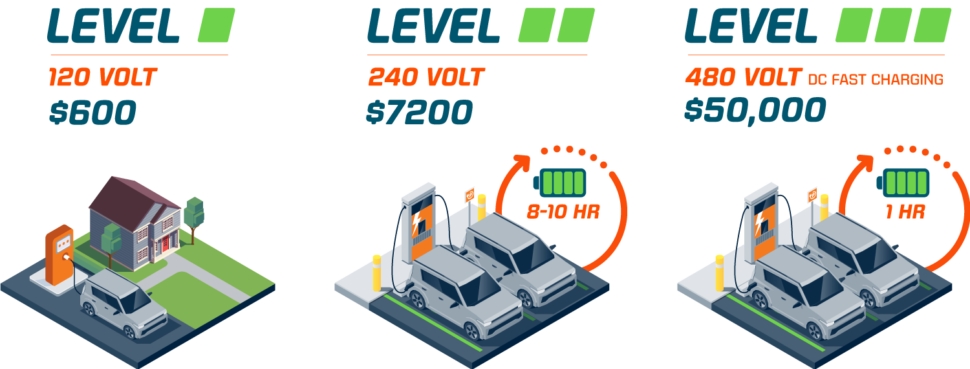
Power Output of the EV Charger
Commercial EV charging stations fall into two categories: level 2 and level 3. (Level 1 chargers use 120-volt power and are appropriate for residential use.) The type of charger you select—and the accompanying power output, accessories, and infrastructure required—directly affect the price.
Level 2 EV chargers run on 240-volt power, similar to what is required to run a heavy appliance. Level 2 chargers operate up to 19.2 kilowatts (kW) and can charge an EV at about 40 miles per hour. The cost of a public-facing level 2 EV charging station starts at about $1,500. At this lower price range, EV chargers provide about 9.6 kW of power with a single port available.
Level 3 EV chargers, also known as direct-current fast chargers (DCFC), require the 480-volt three-phase power typically found at industrial parks. Generally, any EV charger that provides 20 kW or more of power is considered level 3. But there is a wide range of power output available, which directly affects cost. For example, in 2024, ChargePoint will be offering a system that can deliver 500 kW to a single port.
Number of EV Charging Ports
In addition to the power output, the number of ports that the equipment provides affects cost. A station that can charge two EVs simultaneously costs more than an EV charger with a single port. With a maximum output of 19.2 kW, a dual-port EV charger can cost about $9,000 at the high end.
A simple, public-facing 30 kW DCFC costs around $15,000. But a dual-port fast charger with more than 200 kW of power will cost more than $150,000.
However, in 2024 there is a large pool of incentives that, in many cases, can offset up to 100% of your business’s installation costs.
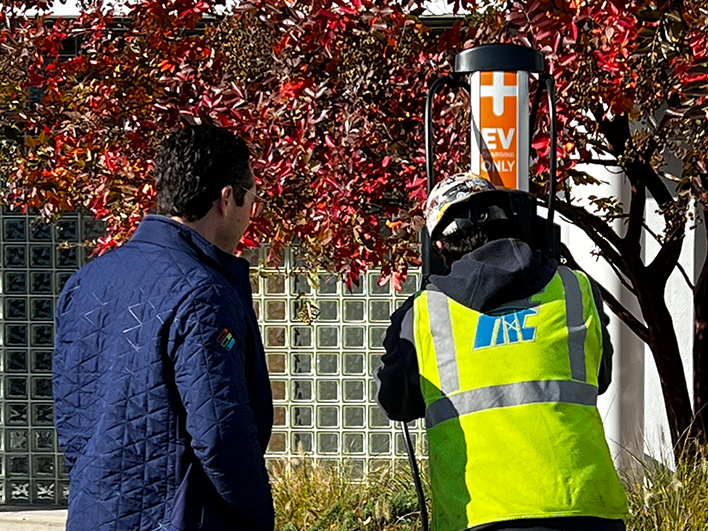
EV Charging Infrastructure Costs
EV charging stations supply electricity to vehicles through their connection to the utility company. But existing electrical conduits may require an upgrade, which can cost an average range of $12,000 to $15,000. Electrical upgrades are a primary variable in EV charging station costs.
For instance, connecting to an existing 240-volt circuit might involve just a couple of hours of an electrician’s labor at $100/hour. But installation of a dedicated 480-volt circuit could cost tens of thousands of dollars.
As a further consideration, Future Energy recommends the installation of level 3 infrastructure even if your current use case calls only for level 2 chargers.
Cost of Additional EV Charger Features
Additional features can add to the cost of EV charging equipment.
Mounting System
The type of mounting system—ceiling or wall—also affects cost. For EV chargers in a lot, you can choose the type of pedestal on which they sit. Purchased a la carte, pedestals can add $1,500 or more to your cost.
Power Add-Ons
The power output capabilities of EV charging hardware continue to increase. For example, ChargePoint offers the ability to boost the power offered by its level 3 chargers through 40 kW power modules, each of which can cost up to $10,000.
Customizable EV Charging Add-Ons
Other accessories factor into EV charging station costs. These add-ons boost your brand through customization.
For instance, you can customize the striping of your parking spots and your signage. Future Energy works with your business’s marketing team to facilitate communication with printers, painters, and other relevant contractors. The cost of customization starts at around $1,500.
Other add-ons help to optimize a driver’s experience while charging. For example, protective bollards—short, sturdy posts that protect the machinery—cost around $400 each. Or a station may require parking blocks, similar to a curb, at around $600 apiece.
Incentives to Offset EV Charging Stations Cost in 2024

With the global emphasis on sustainability, there’s money available to offset the cost of EV charging stations in 2024. Future Energy specializes in helping businesses identify and procure all available funding.
NEVI
The National Electric Vehicle Infrastructure Formula Program allocates $5 billion in funding for EV charging infrastructure across 75,000 miles of highway across the country. Your organization must be within one mile of an established alternative fuel corridor to qualify and may need to meet other requirements as well.
Federal Tax Credit
The Alternative Fuel Vehicle Refueling Property Credit gives qualifying businesses a 30% tax credit, up to $100,000, for the purchase and installation of EV charging infrastructure.
Port Authority Funding
The Clean Ports Program offers up to $500 million, or 80% to 90% of eligible project costs, for the deployment of zero-emission port equipment and for the purchase and installation of charging infrastructure.
The Environmental Protection Agency (EPA) is accepting applications between February and May 2024.
The Environmental Protection Agency (EPA) is accepting applications between February and May 2024.
Help with Determining EV Charging Station Cost
Future Energy provides a customized EV Impact Study for all of our clients to help implement your EV charging projects and determine cost. We are a one-stop shop for sourcing and installing EV charging equipment, and we help get you to the front of the line for any necessary utility upgrades. Contact Future Energy today for help in determining the cost of EV charging stations in 2024.

